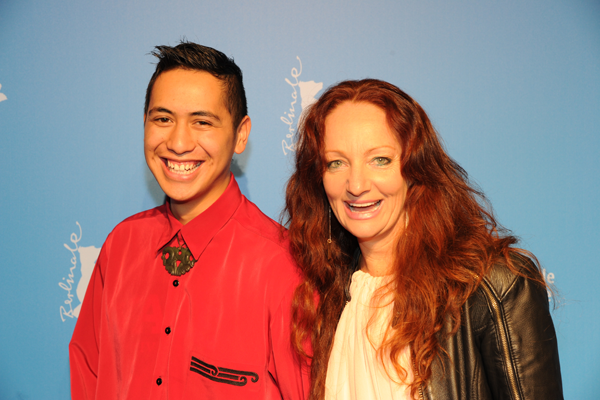Pietra Brettkelly
director of Maori Boy Genius
How did you discover this unique story?
I wanted to follow up on this story my friend found about Ngā Raūira in the local Hawkes Bay newspaper, and knew there was something interesting about this boy. We flew down to Hawkes Bay to initially meet him and his dad Ö I met this remarkable, confident, very charismatic young man, and wanted to make sure that he wanted all these things. He had fabulous pressure on him from his iwi and his hapu and his whanau, but he had to want this education and this pathway as well, because Iím not really interested in doing a film on helicopter parenting, with parents living through their children. I wanted to do a story on a young man finding himself and his political voice Ė and Ngā Raūira did want this, did want all these things.
Why do you think this story is such an important one to be told?
Because he breaks through some of the worst statistics in the world. When young Maori men leave school, over 50% have no qualification at all. They make up over 40% of our prison population. There are high incidences of suicides. Itís a terrible realm of statistics, and for him to break through all them is extraordinary in itself. Ö Thatís why itís done so well internationally, I think Ė because it resonates on so many levels. It resonates for many people Ė not just indigenous people, not just Maori Ė it resonates for anyone who is trying to go beyond what the statistics tell them they could achieve, whether itís gender, ability, culture, race, geography.
Has the process of getting the film from television to cinema been a difficult one?
Absolutely, because Iíve had to fund it all myself as a feature film. I went to Denmark to do the edit; I work-shopped it overseas and really made it into an international film. It was released at the Berlin Film Festival last year, and to be selected for that festival, which is one of the top five in the world, is a huge acknowledgement.
Documentaries require a delicate balance between letting the story tell itself, and giving the film structure Ė what are the challenges involved in this?
The main challenges are having confidence that a story will evolve. With documentary, itís kind of a wing and a prayer really, and the prayer is that something will happen, because we canít just make it happen. So the more that Iíve been in the industry and been making films (which has been for 16 years now) I know I can trust my gut. I can read the situation and understand the person and what is surrounding them and that something is going to happen. Ö Thankfully, I havenít made a documentary that hasnít had some kind of beginning, middle and end Ė that would just be a disaster.
Depiction of Maori culture in our cinema has evolved over the years, from the heavy-handedness of Once Were Warriors to the lighter touch of Boy Ė how do you think it has changed? What do you think, if anything, needed to change?
I think thereís been a bigger picture happen, in that Maori are telling their own stories and they are also a much bigger part of our industry. And thatís been the combination of a bunch of things Ė the film commission making a considered effort to have more Maori filmmakers and Maori stories Ö Also Maori Television has, of course, given a presence to Maori media and broadcasters and filmmakers.
But having said that, Iíve come up against some degree of challenge that I shouldnít be telling this story, that a Pakeha person shouldnít be telling this story. But you know, thereís always that debate as well. I just think that hopefully New Zealanders, all of us, are becoming more aware of the complexities of our own society, and want to see and hear and be educated more about all of these issues that make up our country.
The film is entitled Maori Boy Genius: Volume One Ė what do you envisage for the second half of this film? Your website references the 7Up documentary series, do you think that is an approach you would be interested in taking with Ngā Raūira?
I donít know, really. I think the reason why I called it Volume One was just to hint at the fact that this is just the start and there is so much more to come. Whether I document it or not, Iím not sure. Weíre still in contact a lot and now that Iím travelling the country, heís trying to come to some screenings and heís terribly supportive of the film, but I think I should leave him alone for a little while.







